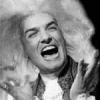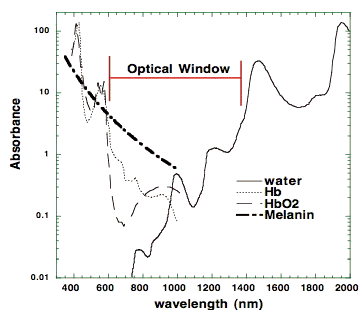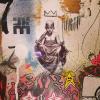1. Given my possible TBI history, do you think I've probably had chronic inflammation in my brain for a long time?
2. Is it possible to replace Ibudilast with Ibuprofen in your protocol?
Here's a study about Ibuprofen inhibits neuroinflammation and attenuates white matter damage following hypoxia-ischemia in the immature rodent brain: http://www.ncbi.nlm....pubmed/21696706
Thanks a lot!
Hey cougar, I'm sorry to hear about your tbi. They can def have lasting effects on neuroimmune function. One major effect is called reactive gliosis which refers to post-tbi chronic microglial/astrocytic activation.
1. This is definitely possible.
2. I don't think ibuprofen could quite be called a 'replacement' (it has a different mechanism than ibudilast) but I do think it's worth a try with galantamine (or a cholinergic anti-inflammatory pathway activator of your choice). =)
http://www.ncbi.nlm....les/PMC3489473/
Neuroscience. 2012 Dec 6;225:65-75. doi: 10.1016/j.neuroscience.2012.08.058. Epub 2012 Sep 6.
Morphological and genetic activation of microglia after diffuse traumatic brain injury in the rat.
Cao T1, Thomas TC, Ziebell JM, Pauly JR, Lifshitz J.
Author information
Abstract
Traumatic brain injury (TBI) survivors experience long-term post-traumatic morbidities. In diffuse brain-injured rats, a chronic sensory sensitivity to whisker stimulation models the agitation of TBI survivors and provides anatomical landmarks across the whisker-barrel circuit to evaluate post-traumatic neuropathology. As a consequence of TBI, acute and chronic microglial activation can contribute to degenerative and reparative events underlying post-traumatic morbidity. Here we hypothesize that a temporal sequence of microglial activation states contributes to the circuit pathology responsible for post-traumatic morbidity, and test the hypothesis by examining microglial morphological activation and neuroinflammatory markers for activation states through gene expression and receptor-binding affinity. Adult male, Sprague-Dawley rats were subjected to a single moderate midline fluid percussion injury (FPI) or sham injury. Microglial activation was determined by immunohistochemistry, quantitative real-time PCR and receptor autoradiography in the primary somatosensory barrel field (S1BF) and ventral posterior medial nucleus (VPM) of the thalamus at 7 and 28 days following FPI. Morphological changes indicative of microglial activation, including swollen cell body with thicker, shrunken processes, were evident in S1BF and VPM at 7 and 28 days post-injury. Principally at 7 days post-injury in VPM, general inflammatory gene expression (major histocompatibility complex I, major histocompatibility complex II, translocator protein 18 kDa [TSPO]) is increased above sham level and TSPO gene expression confirmed by receptor autoradiography. Further, CD45, a marker of classical activation, and TGF-βI, an acquired deactivation marker, were elevated significantly above sham at 7 days post-injury. Daily administration of the anti-inflammatory ibuprofen (20mg/kg, i.p.) significantly reduced the expression of these genes. Evidence for alternative activation (arginase 1) was not observed. Thus, these data demonstrate concomitant classical activation and acquired deactivation phenotypes of microglia in diffuse TBI in the absence of overt contusion or cavitation. Anti-inflammatory treatment may further alleviate the neuropathological burden of post-traumatic inflammation.
http://www.ncbi.nlm....les/PMC3934516/
J Neurotrauma. 2014 Mar 1;31(5):487-97. doi: 10.1089/neu.2013.3090. Epub 2013 Nov 20.
Reversal of established traumatic brain injury-induced, anxiety-like behavior in rats after delayed, post-injury neuroimmune suppression.
Abstract
Abstract Traumatic brain injury (TBI) increases the risk of neuropsychiatric disorders, particularly anxiety disorders. Yet, there are presently no therapeutic interventions to prevent the development of post-traumatic anxiety or effective treatments once it has developed. This is because, in large part, of a lack of understanding of the underlying pathophysiology. Recent research suggests that chronic neuroinflammatory responses to injury may play a role in the development of post-traumatic anxiety in rodent models. Acute peri-injury administration of immunosuppressive compounds, such as Ibudilast (MN166), have been shown to prevent reactive gliosis associated with immune responses to injury and also prevent lateral fluid percussion injury (LFPI)-induced anxiety-like behavior in rats. There is evidence in both human and rodent studies that post-traumatic anxiety, once developed, is a chronic, persistent, and drug-refractory condition. In the present study, we sought to determine whether neuroinflammation is associated with the long-term maintenance of post-traumatic anxiety. We examined the efficacy of an anti-inflammatory treatment in decreasing anxiety-like behavior and reactive gliosis when introduced at 1 month after injury. Delayed treatment substantially reduced established LFPI-induced freezing behavior and reactive gliosis in brain regions associated with anxiety and continued neuroprotective effects were evidenced 6 months post-treatment. These results support the conclusion that neuroinflammation may be involved in the development and maintenance of anxiety-like behaviors after TBI.
http://www.ncbi.nlm....les/PMC3390983/
J Neurotrauma. 2012 Jul 1;29(10):1886-97. doi: 10.1089/neu.2011.2273. Epub 2012 Apr 26.
Acute neuroimmune modulation attenuates the development of anxiety-like freezing behavior in an animal model of traumatic brain injury.
Abstract
Chronic anxiety is a common and debilitating result of traumatic brain injury (TBI) in humans. While little is known about the neural mechanisms of this disorder, inflammation resulting from activation of the brain's immune response to insult has been implicated in both human post-traumatic anxiety and in recently developed animal models. In this study, we used a lateral fluid percussion injury (LFPI) model of TBI in the rat and examined freezing behavior as a measure of post-traumatic anxiety. We found that LFPI produced anxiety-like freezing behavior accompanied by increased reactive gliosis (reflecting neuroimmune inflammatory responses) in key brain structures associated with anxiety: the amygdala, insula, and hippocampus. Acute peri-injury administration of ibudilast (MN166), a glial cell activation inhibitor, suppressed both reactive gliosis and freezing behavior, and continued neuroprotective effects were apparent several months post-injury. These results support the conclusion that inflammation produced by neuroimmune responses to TBI play a role in post-traumatic anxiety, and that acute suppression of injury-induced glial cell activation may have promise for the prevention of post-traumatic anxiety in humans.
Edited by lostfalco, 18 April 2016 - 03:45 PM.






















































